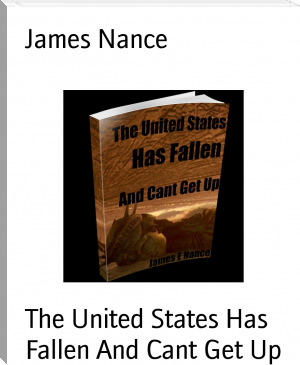The Prince - Niccolò Machiavelli (the beginning after the end novel read .TXT) 📗

- Author: Niccolò Machiavelli
Book online «The Prince - Niccolò Machiavelli (the beginning after the end novel read .TXT) 📗». Author Niccolò Machiavelli
not discuss Moses, he having been a mere executor of the will of God, yet he ought to be admired, if only for that favour which made him worthy to speak with God. But in considering Cyrus and others who have acquired or founded kingdoms, all will be found admirable; and if their particular deeds and conduct shall be considered, they will not be found inferior to those of Moses, although he had so great a preceptor. And in examining their actions and lives one cannot see that they owed anything to fortune beyond opportunity, which brought them the material to mould into the form which seemed best to them. Without that opportunity their powers of mind would have been extinguished, and without those powers the opportunity would have come in vain.
It was necessary, therefore, to Moses that he should find the people of Israel in Egypt enslaved and oppressed by the Egyptians, in order that they should be disposed to follow him so as to be delivered out of bondage. It was necessary that Romulus should not remain in Alba, and that he should be abandoned at his birth, in order that he should become King of Rome and founder of the fatherland. It was necessary that Cyrus should find the Persians discontented with the government of the Medes, and the Medes soft and effeminate through their long peace. Theseus could not have shown his ability had he not found the Athenians dispersed. These opportunities, therefore, made those men fortunate, and their high ability enabled them to recognize the opportunity whereby their country was ennobled and made famous.
Those who by valorous ways become princes, like these men, acquire a principality with difficulty, but they keep it with ease. The difficulties they have in acquiring it rise in part from the new rules and methods which they are forced to introduce to establish their government and its security. And it ought to be remembered that there is nothing more difficult to take in hand, more perilous to conduct, or more uncertain in its success, then to take the lead in the introduction of a new order of things. Because the innovator has for enemies all those who have done well under the old conditions, and lukewarm defenders in those who may do well under the new. This coolness arises partly from fear of the opponents, who have the laws on their side, and partly from the incredulity of men, who do not readily believe in new things until they have had a long experience of them. Thus it happens that whenever those who are hostile have the opportunity to attack they do it like partisans, whilst the others defend lukewarmly, in such wise that the prince is endangered along with them.
It is necessary, therefore, if we desire to discuss this matter thoroughly, to inquire whether these innovators can rely on themselves or have to depend on others: that is to say, whether, to consummate their enterprise, have they to use prayers or can they use force? In the first instance they always succeed badly, and never compass anything; but when they can rely on themselves and use force, then they are rarely endangered. Hence it is that all armed prophets have conquered, and the unarmed ones have been destroyed. Besides the reasons mentioned, the nature of the people is variable, and whilst it is easy to persuade them, it is difficult to fix them in that persuasion. And thus it is necessary to take such measures that, when they believe no longer, it may be possible to make them believe by force.
If Moses, Cyrus, Theseus, and Romulus had been unarmed they could not have enforced their constitutions for long--as happened in our time to Fra Girolamo Savonarola, who was ruined with his new order of things immediately the multitude believed in him no longer, and he had no means of keeping steadfast those who believed or of making the unbelievers to believe. Therefore such as these have great difficulties in consummating their enterprise, for all their dangers are in the ascent, yet with ability they will overcome them; but when these are overcome, and those who envied them their success are exterminated, they will begin to be respected, and they will continue afterwards powerful, secure, honoured, and happy.
To these great examples I wish to add a lesser one; still it bears some resemblance to them, and I wish it to suffice me for all of a like kind: it is Hiero the Syracusan.(*) This man rose from a private station to be Prince of Syracuse, nor did he, either, owe anything to fortune but opportunity; for the Syracusans, being oppressed, chose him for their captain, afterwards he was rewarded by being made their prince. He was of so great ability, even as a private citizen, that one who writes of him says he wanted nothing but a kingdom to be a king. This man abolished the old soldiery, organized the new, gave up old alliances, made new ones; and as he had his own soldiers and allies, on such foundations he was able to build any edifice: thus, whilst he had endured much trouble in acquiring, he had but little in keeping.
(*) Hiero II, born about 307 B.C., died 216 B.C.
CHAPTER VII -- CONCERNING NEW PRINCIPALITIES WHICH ARE ACQUIRED EITHER BY THE ARMS OF OTHERS OR BY GOOD FORTUNE
Those who solely by good fortune become princes from being private citizens have little trouble in rising, but much in keeping atop; they have not any difficulties on the way up, because they fly, but they have many when they reach the summit. Such are those to whom some state is given either for money or by the favour of him who bestows it; as happened to many in Greece, in the cities of Ionia and of the Hellespont, where princes were made by Darius, in order that they might hold the cities both for his security and his glory; as also were those emperors who, by the corruption of the soldiers, from being citizens came to empire. Such stand simply elevated upon the goodwill and the fortune of him who has elevated them--two most inconstant and unstable things. Neither have they the knowledge requisite for the position; because, unless they are men of great worth and ability, it is not reasonable to expect that they should know how to command, having always lived in a private condition; besides, they cannot hold it because they have not forces which they can keep friendly and faithful.
States that rise unexpectedly, then, like all other things in nature which are born and grow rapidly, cannot leave their foundations and correspondencies(*) fixed in such a way that the first storm will not overthrow them; unless, as is said, those who unexpectedly become princes are men of so much ability that they know they have to be prepared at once to hold that which fortune has thrown into their laps, and that those foundations, which others have laid BEFORE they became princes, they must lay AFTERWARDS.
(*) "Le radici e corrispondenze," their roots (i.e.
foundations) and correspondencies or relations with other
states--a common meaning of "correspondence" and
"correspondency" in the sixteenth and seventeenth centuries.
Concerning these two methods of rising to be a prince by ability or fortune, I wish to adduce two examples within our own recollection, and these are Francesco Sforza(*) and Cesare Borgia. Francesco, by proper means and with great ability, from being a private person rose to be Duke of Milan, and that which he had acquired with a thousand anxieties he kept with little trouble. On the other hand, Cesare Borgia, called by the people Duke Valentino, acquired his state during the ascendancy of his father, and on its decline he lost it, notwithstanding that he had taken every measure and done all that ought to be done by a wise and able man to fix firmly his roots in the states which the arms and fortunes of others had bestowed on him.
(*) Francesco Sforza, born 1401, died 1466. He married
Bianca Maria Visconti, a natural daughter of Filippo
Visconti, the Duke of Milan, on whose death he procured his
own elevation to the duchy. Machiavelli was the accredited
agent of the Florentine Republic to Cesare Borgia (1478-
1507) during the transactions which led up to the
assassinations of the Orsini and Vitelli at Sinigalia, and
along with his letters to his chiefs in Florence he has left
an account, written ten years before "The Prince," of the
proceedings of the duke in his "Descritione del modo tenuto
dal duca Valentino nello ammazzare Vitellozzo Vitelli,"
etc., a translation of which is appended to the present
work.
Because, as is stated above, he who has not first laid his foundations may be able with great ability to lay them afterwards, but they will be laid with trouble to the architect and danger to the building. If, therefore, all the steps taken by the duke be considered, it will be seen that he laid solid foundations for his future power, and I do not consider it superfluous to discuss them, because I do not know what better precepts to give a new prince than the example of his actions; and if his dispositions were of no avail, that was not his fault, but the extraordinary and extreme malignity of fortune.
Alexander the Sixth, in wishing to aggrandize the duke, his son, had many immediate and prospective difficulties. Firstly, he did not see his way to make him master of any state that was not a state of the Church; and if he was willing to rob the Church he knew that the Duke of Milan and the Venetians would not consent, because Faenza and Rimini were already under the protection of the Venetians. Besides this, he saw the arms of Italy, especially those by which he might have been assisted, in hands that would fear the aggrandizement of the Pope, namely, the Orsini and the Colonnesi and their following. It behoved him, therefore, to upset this state of affairs and embroil the powers, so as to make himself securely master of part of their states. This was easy for him to do, because he found the Venetians, moved by other reasons, inclined to bring back the French into Italy; he would not only not oppose this, but he would render it more easy by dissolving the former marriage of King Louis. Therefore the king came into Italy with the assistance of the Venetians and the consent of Alexander. He was no sooner in Milan than the Pope had soldiers from him for the attempt on the Romagna, which yielded to him on the reputation of the king. The duke, therefore, having acquired the Romagna and beaten the Colonnesi, while wishing to hold that and to advance further, was hindered by two things: the one, his forces did not appear loyal to him, the other, the goodwill of France: that is to say, he feared that the forces of the Orsini, which he was using, would not stand to him, that not only might they hinder him from winning more, but might themselves seize what he had won, and that the king might also do the same. Of the Orsini
It was necessary, therefore, to Moses that he should find the people of Israel in Egypt enslaved and oppressed by the Egyptians, in order that they should be disposed to follow him so as to be delivered out of bondage. It was necessary that Romulus should not remain in Alba, and that he should be abandoned at his birth, in order that he should become King of Rome and founder of the fatherland. It was necessary that Cyrus should find the Persians discontented with the government of the Medes, and the Medes soft and effeminate through their long peace. Theseus could not have shown his ability had he not found the Athenians dispersed. These opportunities, therefore, made those men fortunate, and their high ability enabled them to recognize the opportunity whereby their country was ennobled and made famous.
Those who by valorous ways become princes, like these men, acquire a principality with difficulty, but they keep it with ease. The difficulties they have in acquiring it rise in part from the new rules and methods which they are forced to introduce to establish their government and its security. And it ought to be remembered that there is nothing more difficult to take in hand, more perilous to conduct, or more uncertain in its success, then to take the lead in the introduction of a new order of things. Because the innovator has for enemies all those who have done well under the old conditions, and lukewarm defenders in those who may do well under the new. This coolness arises partly from fear of the opponents, who have the laws on their side, and partly from the incredulity of men, who do not readily believe in new things until they have had a long experience of them. Thus it happens that whenever those who are hostile have the opportunity to attack they do it like partisans, whilst the others defend lukewarmly, in such wise that the prince is endangered along with them.
It is necessary, therefore, if we desire to discuss this matter thoroughly, to inquire whether these innovators can rely on themselves or have to depend on others: that is to say, whether, to consummate their enterprise, have they to use prayers or can they use force? In the first instance they always succeed badly, and never compass anything; but when they can rely on themselves and use force, then they are rarely endangered. Hence it is that all armed prophets have conquered, and the unarmed ones have been destroyed. Besides the reasons mentioned, the nature of the people is variable, and whilst it is easy to persuade them, it is difficult to fix them in that persuasion. And thus it is necessary to take such measures that, when they believe no longer, it may be possible to make them believe by force.
If Moses, Cyrus, Theseus, and Romulus had been unarmed they could not have enforced their constitutions for long--as happened in our time to Fra Girolamo Savonarola, who was ruined with his new order of things immediately the multitude believed in him no longer, and he had no means of keeping steadfast those who believed or of making the unbelievers to believe. Therefore such as these have great difficulties in consummating their enterprise, for all their dangers are in the ascent, yet with ability they will overcome them; but when these are overcome, and those who envied them their success are exterminated, they will begin to be respected, and they will continue afterwards powerful, secure, honoured, and happy.
To these great examples I wish to add a lesser one; still it bears some resemblance to them, and I wish it to suffice me for all of a like kind: it is Hiero the Syracusan.(*) This man rose from a private station to be Prince of Syracuse, nor did he, either, owe anything to fortune but opportunity; for the Syracusans, being oppressed, chose him for their captain, afterwards he was rewarded by being made their prince. He was of so great ability, even as a private citizen, that one who writes of him says he wanted nothing but a kingdom to be a king. This man abolished the old soldiery, organized the new, gave up old alliances, made new ones; and as he had his own soldiers and allies, on such foundations he was able to build any edifice: thus, whilst he had endured much trouble in acquiring, he had but little in keeping.
(*) Hiero II, born about 307 B.C., died 216 B.C.
CHAPTER VII -- CONCERNING NEW PRINCIPALITIES WHICH ARE ACQUIRED EITHER BY THE ARMS OF OTHERS OR BY GOOD FORTUNE
Those who solely by good fortune become princes from being private citizens have little trouble in rising, but much in keeping atop; they have not any difficulties on the way up, because they fly, but they have many when they reach the summit. Such are those to whom some state is given either for money or by the favour of him who bestows it; as happened to many in Greece, in the cities of Ionia and of the Hellespont, where princes were made by Darius, in order that they might hold the cities both for his security and his glory; as also were those emperors who, by the corruption of the soldiers, from being citizens came to empire. Such stand simply elevated upon the goodwill and the fortune of him who has elevated them--two most inconstant and unstable things. Neither have they the knowledge requisite for the position; because, unless they are men of great worth and ability, it is not reasonable to expect that they should know how to command, having always lived in a private condition; besides, they cannot hold it because they have not forces which they can keep friendly and faithful.
States that rise unexpectedly, then, like all other things in nature which are born and grow rapidly, cannot leave their foundations and correspondencies(*) fixed in such a way that the first storm will not overthrow them; unless, as is said, those who unexpectedly become princes are men of so much ability that they know they have to be prepared at once to hold that which fortune has thrown into their laps, and that those foundations, which others have laid BEFORE they became princes, they must lay AFTERWARDS.
(*) "Le radici e corrispondenze," their roots (i.e.
foundations) and correspondencies or relations with other
states--a common meaning of "correspondence" and
"correspondency" in the sixteenth and seventeenth centuries.
Concerning these two methods of rising to be a prince by ability or fortune, I wish to adduce two examples within our own recollection, and these are Francesco Sforza(*) and Cesare Borgia. Francesco, by proper means and with great ability, from being a private person rose to be Duke of Milan, and that which he had acquired with a thousand anxieties he kept with little trouble. On the other hand, Cesare Borgia, called by the people Duke Valentino, acquired his state during the ascendancy of his father, and on its decline he lost it, notwithstanding that he had taken every measure and done all that ought to be done by a wise and able man to fix firmly his roots in the states which the arms and fortunes of others had bestowed on him.
(*) Francesco Sforza, born 1401, died 1466. He married
Bianca Maria Visconti, a natural daughter of Filippo
Visconti, the Duke of Milan, on whose death he procured his
own elevation to the duchy. Machiavelli was the accredited
agent of the Florentine Republic to Cesare Borgia (1478-
1507) during the transactions which led up to the
assassinations of the Orsini and Vitelli at Sinigalia, and
along with his letters to his chiefs in Florence he has left
an account, written ten years before "The Prince," of the
proceedings of the duke in his "Descritione del modo tenuto
dal duca Valentino nello ammazzare Vitellozzo Vitelli,"
etc., a translation of which is appended to the present
work.
Because, as is stated above, he who has not first laid his foundations may be able with great ability to lay them afterwards, but they will be laid with trouble to the architect and danger to the building. If, therefore, all the steps taken by the duke be considered, it will be seen that he laid solid foundations for his future power, and I do not consider it superfluous to discuss them, because I do not know what better precepts to give a new prince than the example of his actions; and if his dispositions were of no avail, that was not his fault, but the extraordinary and extreme malignity of fortune.
Alexander the Sixth, in wishing to aggrandize the duke, his son, had many immediate and prospective difficulties. Firstly, he did not see his way to make him master of any state that was not a state of the Church; and if he was willing to rob the Church he knew that the Duke of Milan and the Venetians would not consent, because Faenza and Rimini were already under the protection of the Venetians. Besides this, he saw the arms of Italy, especially those by which he might have been assisted, in hands that would fear the aggrandizement of the Pope, namely, the Orsini and the Colonnesi and their following. It behoved him, therefore, to upset this state of affairs and embroil the powers, so as to make himself securely master of part of their states. This was easy for him to do, because he found the Venetians, moved by other reasons, inclined to bring back the French into Italy; he would not only not oppose this, but he would render it more easy by dissolving the former marriage of King Louis. Therefore the king came into Italy with the assistance of the Venetians and the consent of Alexander. He was no sooner in Milan than the Pope had soldiers from him for the attempt on the Romagna, which yielded to him on the reputation of the king. The duke, therefore, having acquired the Romagna and beaten the Colonnesi, while wishing to hold that and to advance further, was hindered by two things: the one, his forces did not appear loyal to him, the other, the goodwill of France: that is to say, he feared that the forces of the Orsini, which he was using, would not stand to him, that not only might they hinder him from winning more, but might themselves seize what he had won, and that the king might also do the same. Of the Orsini
Free e-book «The Prince - Niccolò Machiavelli (the beginning after the end novel read .TXT) 📗» - read online now
Similar e-books:





Comments (0)